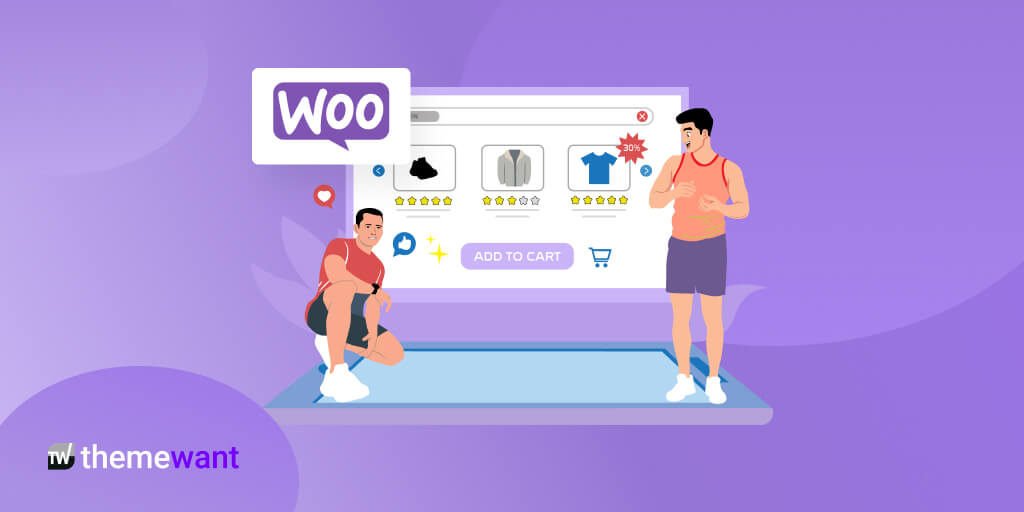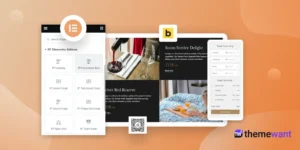Is your WooCommerce store losing sales by offering a one-size-fits-all shopping experience?
Today’s customers expect more than just great products—they want choices. In fact, a recent study by Deloitte found that 36% of consumers prefer personalized products, and businesses that offer customization see a 20% boost in customer satisfaction and loyalty. If your store doesn’t offer customizable product options, you’re not just missing an opportunity—you’re leaving money on the table.
The pain is real: rigid product offerings lead to abandoned carts, dissatisfied customers, and shrinking profits. But there’s a simple, powerful solution: customizable product options. By enabling customers to personalize their purchases, you transform the shopping experience into something memorable, engaging, and unique—giving your business a competitive edge.
Let’s imagine the impact of letting your customers design their dream products. Think custom-engraved jewelry, personalized T-shirts, or tailored gift bundles. With WooCommerce, implementing this feature is easier than ever, and the payoff is worth it: higher conversion rates, increased average order value, and customers who keep coming back for more.
It’s time to meet your customers’ expectations and elevate your store’s performance. Offering customizable product options is no longer a luxury—it’s a necessity. Are you ready to unlock your store’s full potential? Let’s dive in.
Why Every WooCommerce Store Should Offer Customizable Product Options?
Customizable product options have become a game-changer in eCommerce, especially for WooCommerce stores. Here’s why they’re crucial for success.
1. Enhancing customer experience
A Deloitte study found that 36% of consumers are interested in purchasing personalized products or services, and 48% are willing to wait longer for customized items. By integrating customization, WooCommerce stores provide an interactive shopping experience, increasing user satisfaction.
For example, platforms like Nike’s “Nike By You” saw personalized products generate a 30% higher conversion rate compared to non-customized options. Offering features like color, material, or design preferences fosters a deeper connection between customers and your brand.
2. Meeting diverse customer needs
According to a study by Epsilon, 80% of consumers are more likely to purchase from brands offering personalized experiences. Customizable options let you cater to various customer demands, from gift personalization to bespoke product sizes.
For WooCommerce, plugins like WooCommerce Product Add-Ons allow you to seamlessly add fields for personalization, making it easier to adapt to diverse needs without significant development overhead.
3. Standing out in a competitive market
The eCommerce space is fiercely competitive, with over 4.9 million online stores worldwide (Statista). In such a crowded marketplace, 77% of customers say they’ve chosen or paid more for brands offering personalized experiences (Forbes).
WooCommerce stores can leverage customization to carve a unique identity, especially in niches like fashion, gifts, or artisanal goods. Competitors offering only standard options are less likely to capture the attention of customers seeking unique experiences.
4. Increasing average order value (AOV)
Customizable products encourage customers to spend more. Research by Bain & Company shows that personalized products can boost revenue by 20% and even reduce marketing and inventory costs.
For example, a WooCommerce store selling custom jewelry can charge a premium for engraving options or unique gemstone settings. Customers often perceive these add-ons as valuable upgrades, naturally increasing AOV.
5. Building long-term customer relationships
Brands that invest in customization retain more customers. According to Accenture, 91% of consumers are more likely to shop with brands that recognize and remember them and offer tailored recommendations.
WooCommerce stores can create these memorable experiences by offering tailored options that customers won’t find elsewhere. Repeat purchases are also more likely when buyers feel they’re getting a product designed specifically for them.
6. Leveraging upselling opportunities
Customization options can naturally integrate upselling. For instance, 71% of customers are willing to pay extra for premium options that meet their unique needs (BusinessWire).
WooCommerce plugins like Composite Products and Bundles let store owners suggest upgrades or complementary add-ons during the customization process. For example, a custom laptop seller could offer upgrades for memory or processor power.
7. Reducing returns and dissatisfaction
One of the hidden costs of eCommerce is product returns, which average 16% of total purchases (National Retail Federation). However, custom products are returned at much lower rates—just 1-2%—because customers have invested thought and effort into their choices.
Offering precise customization fields, such as measurements or detailed preferences, ensures the product aligns closely with customer expectations, reducing dissatisfaction and logistical costs.
8. Expanding into new markets
Customizable products open opportunities in niche markets. The global customization market is projected to grow at a CAGR of 9.4% from 2023 to 2030, reaching $1.65 billion (Grand View Research).
WooCommerce stores targeting niche audiences—such as wedding gifts, corporate branding, or specialized hobbies—can thrive by catering to specific needs that generic products cannot fulfill.
9. Improving brand perception
A Survey by Salesforce found that 56% of consumers believe brands that offer personalization are more innovative. Customization aligns your brand with high-quality, premium, and customer-focused ideals, building a positive image.
For WooCommerce stores, showcasing customizable options prominently—such as “Design Your Own” tools or bespoke configurators—reinforces a reputation for quality and innovation.
10. Utilizing WooCommerce extensions for easy implementation
The barrier to offering customization is lower than ever. WooCommerce offers versatile tools like:
- WooCommerce Product Add-Ons: Add text fields, dropdowns, and checkboxes for personalization.
- Composite Products: Let customers build products from multiple components.
- Custom Product Designer: A visual tool for users to design their items, such as t-shirts or mugs.
These tools reduce the technical effort required to implement customization while enabling robust, scalable solutions.
Final Thought
Customizable product options are no longer a luxury—they’re a necessity for WooCommerce stores aiming to thrive in today’s competitive eCommerce landscape. By offering personalization, stores enhance the shopping experience, meet diverse customer needs, and create a unique brand identity that fosters loyalty.
The data is clear: customers value customization, with many willing to pay more and return for repeat purchases. Personalization not only boosts revenue through upselling and increased average order value but also reduces costly returns and dissatisfaction. Moreover, it opens doors to niche markets and elevates your store’s reputation as innovative and customer-focused.
With the availability of WooCommerce tools that simplify implementation, integrating customization has never been easier. By investing in tailored options, your store can stand out, build lasting relationships, and unlock new growth opportunities. Customization isn’t just about selling products; it’s about delivering experiences that keep customers coming back.












